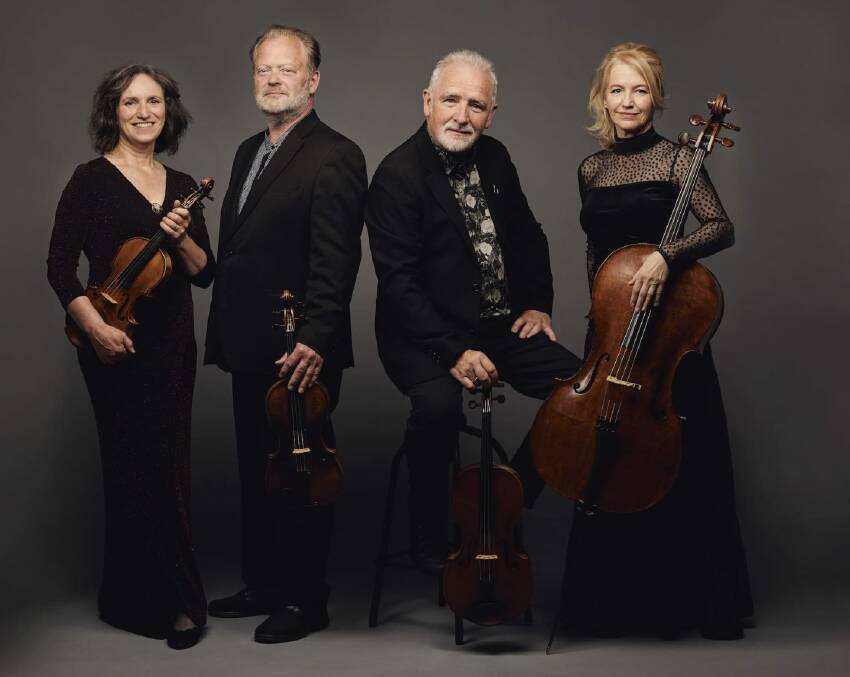
The annual appearance of Roland Peelman seems like a joyous seasonal ritual.
Every year for nearly a decade - bar the single cancellation during the pandemic - he appears, smiling and bouncing like a dog with a waggy tail, just as the autumnal chill gets its grip. He brings fizz and flamboyance to warm the city up just when we need it.
As he discloses the program for the Canberra International Music Festival which he directs, we get a glimpse of the imaginative way in which he has devised the 10 days of concerts around a theme. Sometimes the theme's a bit tenuous but it's always engaging and thought-provoking.
This year's theme is "The Child Within".
As the PR material puts it: "We invite you to listen to a new world as we enter the enchanted forest of our children's imagination. Through the magic of music, we seek to find the child inside all of us".
Mr Peelman explains that adults need to retain a childlike innocence - an openness to new ideas - to be able to create and grow: "If you want to become creative, you have to become a child again," he says.
"It's the key to staying fresh and coming up with new ideas."
And you do get that infectious feeling from talking to him. He is endlessly inventive and enthusiastic in the way he puts different ideas and people together in the festival to get something new and fresh.
"You want to keep things alive so it's important that there's an element of playfulness so that you can come up with something fresh and not jaded.
"The festival is a great celebration of music for everyone, including our children. And including all of us who are no longer children but who need to stay in touch with our inner child in order to remain open to the world.
"I always love people to hear music as if they are hearing it for the first time, without any preconceived ideas but who really discover something.
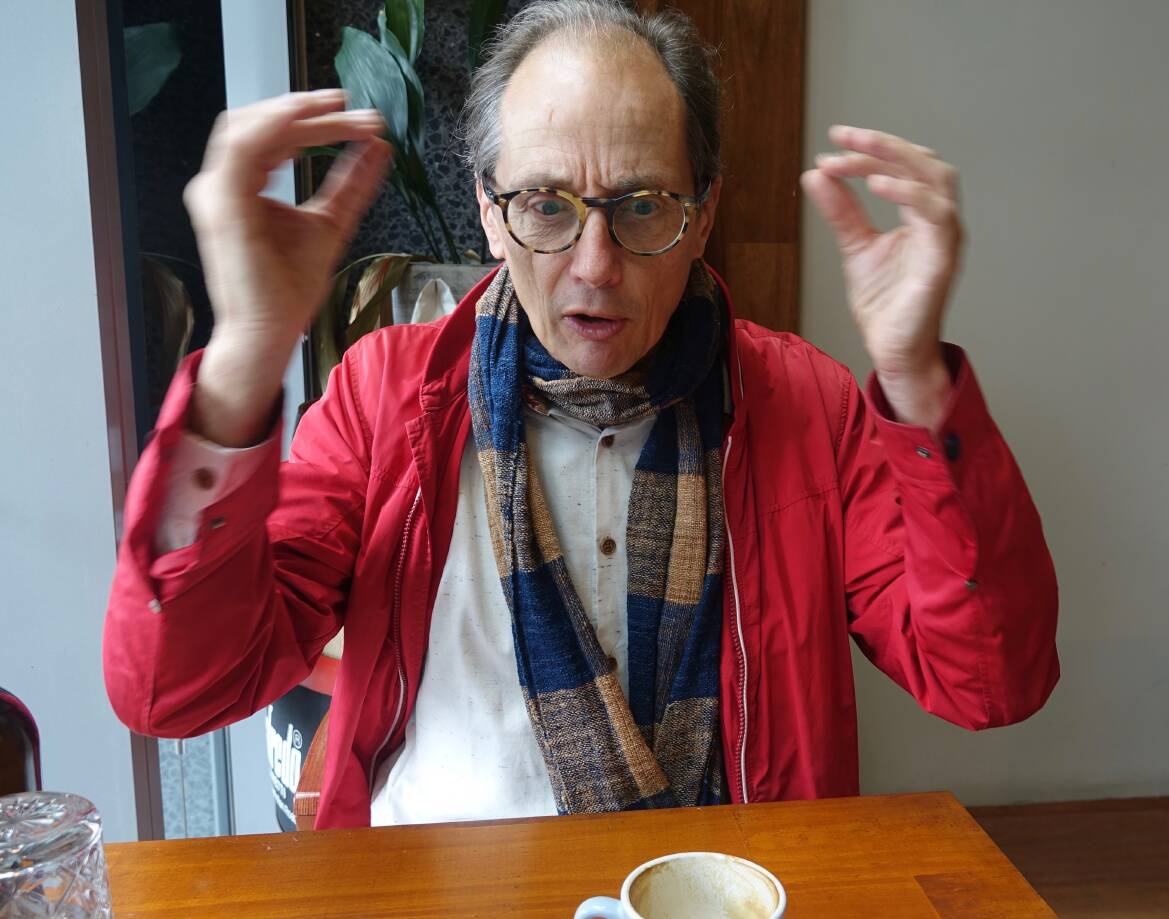
"And that's what the child within actually alludes to. We are not jaded in our approach and I want our musicians to express that, to be fresh and innocent and direct and play for us as if you are the first audiences that we encounter."
The result of his childlike enthusiasm is a festival program that would enthuse concert-goers in any city on the planet. It is varied and surprising.
Some highlights
Apart from the "the child within" being the motto for the festival, children do feature strongly as performers and as the subject of works.
One of the pieces in the concert on May 4 at the Printer's Workshop in Kingston, for example, is "The Children's Crusade", a setting by Benjamin Britten of a Bertolt Brecht poem.
It is not easy stuff.
It's the pacifist English composer's telling of the bleak story of 55 children orphaned in 1939 at the outbreak of war in Poland. They cross the snow in life-threateningly low temperatures with death squads operating.
The work was triggered by one of Brecht's most poignant poems. It's a grim reminder of the impact of war on children - and it's performed by children: Canberra's Luminescence Children's Choir.
"This is not an easy singalong," Mr Peelman says.
"It's not a walk in the park. It's about the effect on war. And it's children who will tell the story. This is a bleak narrative and it's the children who will have to make it work."
That particular concert finishes with a setting of a letter written by a great-grandmother to her daughter as they were fleeing Berlin in 1936. It's a letter of hope at a time of despair.
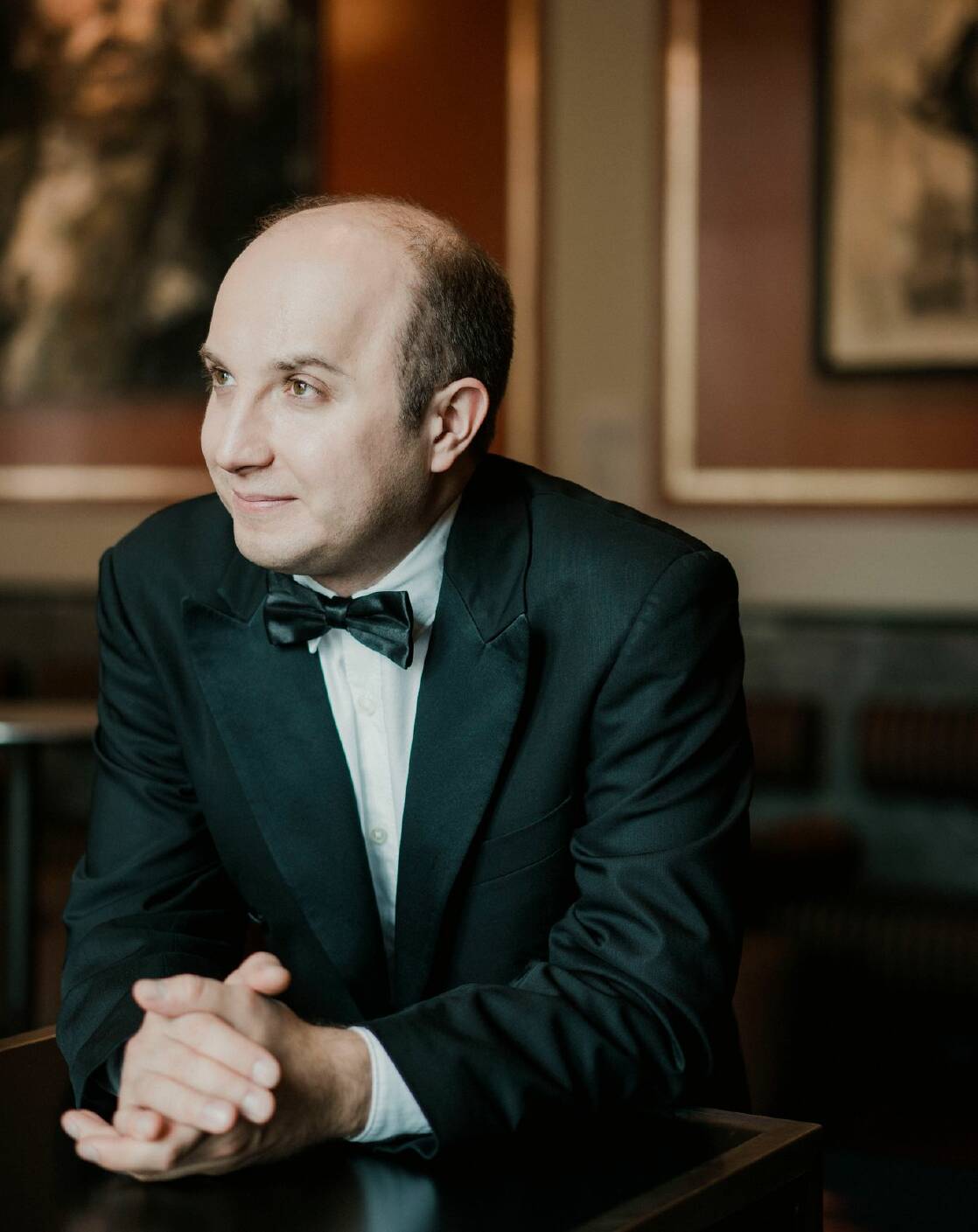
The Luminescence Children's Choir, by the way, is a pretty inspiring outfit. It's based in Canberra for singers aged from 10 to 17. They have to audition so the standard of singing is high.
If the festival has a headline band, it's the Brodsky Quartet, one of the most acclaimed string quartets in the world which has released 60 recordings since it was formed in 1972. It's played in the world's most prestigious chamber music venues.
The quartet is celebrating its half century with three concerts in Canberra, on Saturday, April 29, Sunday, April 30 and Monday, May 1.
The three programs are very different (again going back to Roland Peelman's intention of being imaginative and surprising).
The first Brodsky concert is a showcase of virtuosity. Rather than doing a two work program of the quartet standards - heavyweight Bartok and Beethoven, for example - they will perform 10 shorter pieces they've arranged themselves, including foot-stompers. It's a whole program of encores which will no doubt generate an encore.
Even the heavy-weights come with a difference - there's Shostakovich but his polka; there's Beethoven, but an arrangement of a piano piece (the Moonlight Sonata).
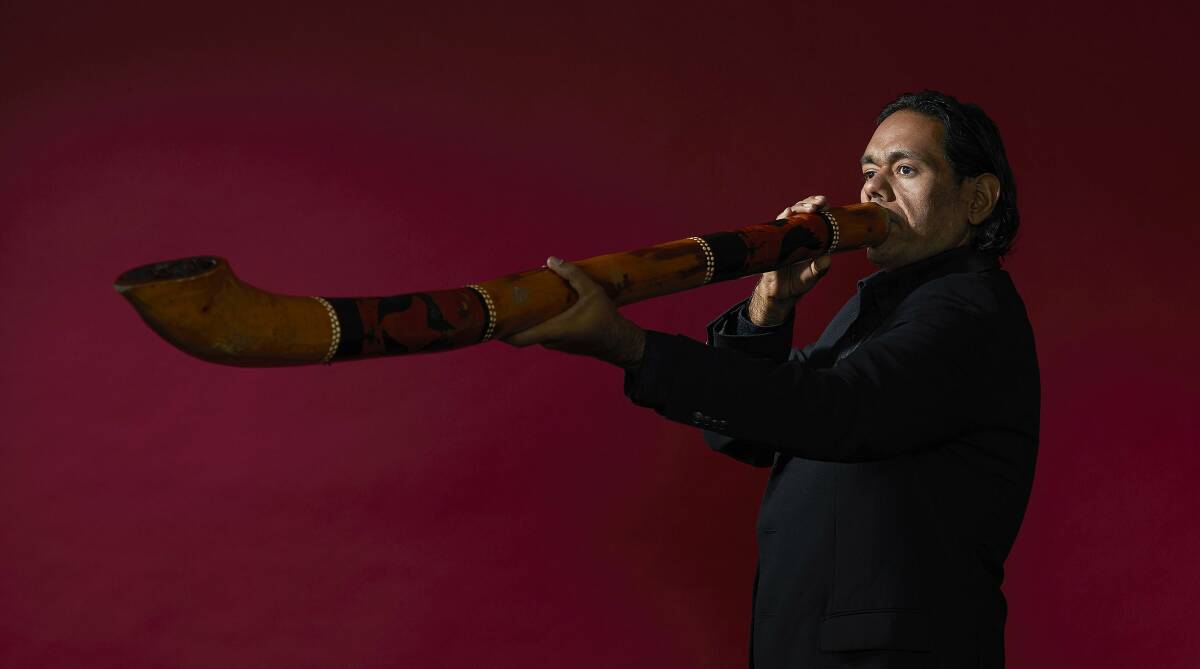
Concert two seems more conventional - a bit of Bach and Bartok - but only at first sight. Again, convention is broken: the classical string quartet will be accompanied by the acclaimed didgeridoo player and composer William Barton who has performed with the big European orchestras in Berlin and London.
The Brodsky concert number three is a gentler affair. They play the Debussy quarter while the audience has breakfast at the Albert Hall.
This is not the quartet's first appearance at the Canberra festival. They appeared last year.
Viola player - violist - Paul Cassidy is looking forward to the revisit. "It's such an exciting festival, so diverse and artistically innovative," he said.
Despite its longevity (maybe because of its longevity), the viola player said the quartet likes to innovate and surprise. "We started arranging pieces from different repertoires - guitar, piano, anything that took our fancy. We would play our arrangements as encores. It became one of our things."
The Brodsky Quartet are one of three top-calibre string quartets performing at the festival. The Quatuor Van Kuijk has won some of the world's big prizes. The Alma Moodie Quartet features four of Australia's finest string players.
Another highlight will no doubt be the recital by the pianist Alexander Gavrylyuk on May 3.
He has played at the world's biggest chamber music venues, including the Wigmore Hall in London, the Tonhalle in Zurich and the Konzerthaus in Berlin.
He was born in Ukraine but moved with his parents to Australia when he was 13.
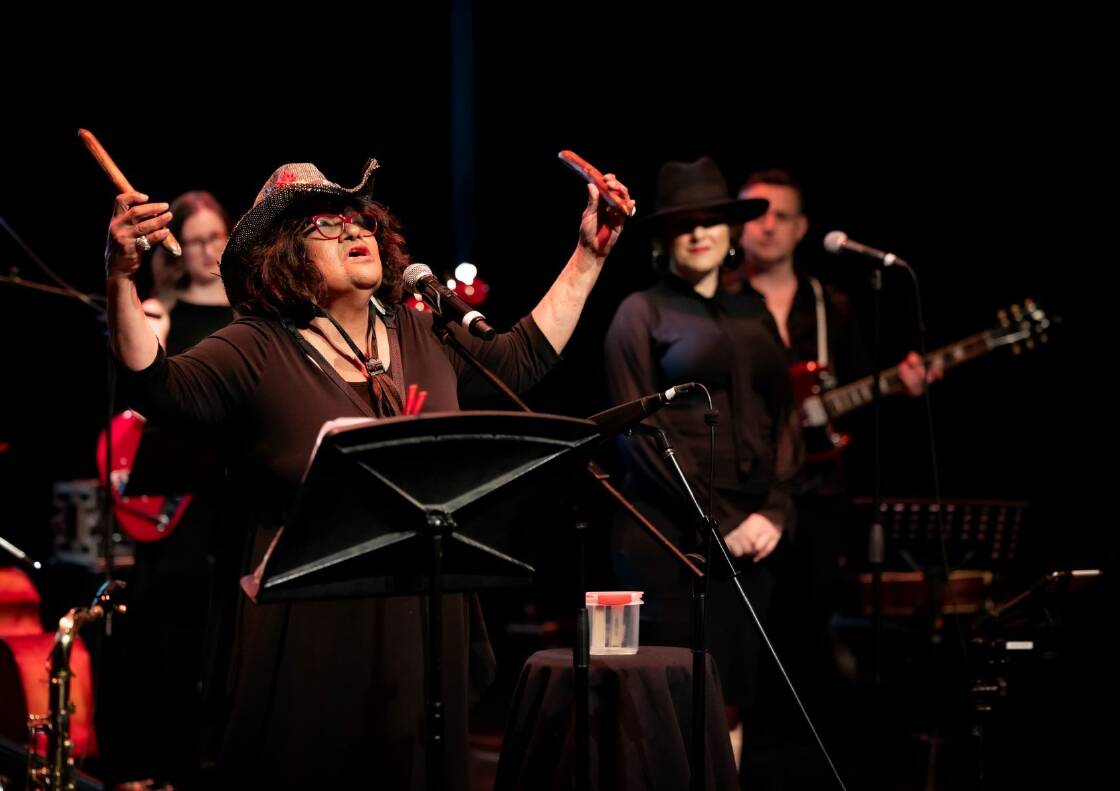
So he grew up in the Soviet Union before its collapse. "I was put into this old Soviet machine that produced pianists. It required hours and hours of practicing in a harsh and strict environment which, to be honest, was not conducive to fostering a love of the art," he said.
The current terrible situation in what was once his Ukrainian homeland resonates today.
"My childhood experiences in nature and concert halls created a special relationship with that part of the world, as did my family. All that has changed now, of course. So, as you can imagine, this is a bittersweet subject."
In Australia, he was very, very lucky to survive when a car carrying the then 20-year-old musician crashed in Sydney.
The last thing he remembered was searching for a piece of cloth to staunch the bleeding from his broken skull before everything went black.
When he came to, he was hooked up to tubes and pipes and unable to speak, so he scratched out a message he thought might alleviate the strain on the concerned faces of the loved ones surrounding him: "Please put beer into one of the tubes".
His attention then turned to his pianist's hands which he was relieved to find were unharmed.
He had undergone several risky operations, however. Two surgeons had spent four hours repairing the skull above his left eye, and bone holders had been used to push the roof of his eye back into place.
He had spent a day in a coma. He had been warned that he might never speak or play the piano again.
"When I finally got home, the first thing I did was try to memorise Chopin's Mazurkas as quickly as I could," he said.
"I absorbed it quite fast and it was proof that everything was going to be OK because I could still play."
Miraculously, the only lasting physical impact is a scar on his forehead. Within a month, he was back playing demanding pieces as well as ever.
Very different will be the authentic Australian blues singer Marlene Cummins, also known as Marloo.
She's a saxophonist as well as a singer of her own songs, and she's authentic in the sense that the great American blues singers are authentic - it's not just the voice but the background, the "lived experience", as it's sometimes called.
She grew up in outback Queensland and became involved in the Aboriginal Tent Embassy in Canberra at the age of 16.
She refined her musical skills as a blues saxophonist and songwriter at the Berklee College of Music in Boston in the mid-90s and has been performing live ever since. She'll perform on April 30 at 2.30pm in the Fairfax Theatre at the National Gallery.
The whole festival starts in an appropriate grand fashion. Roland Peelman conducts the opening gala concert on April 28 at the Fitters' Workshop.
There'll be a feast of classical offerings from Bach, Haydn and Mozart - what the festival blurb calls a "classic symphonic feast". But apart from the big name composers, their less successful family members feature with works by Leopold Mozart, Michael Haydn and J.C. Bach, the youngest of Johann Sebastian's 18 children.
There'll also be a selection of Mozart concert arias.
A step forward
The festival isn't the first since the pandemic. The one in 2020 was cancelled and 2021 was pared down. Last year's got nearer to normality but this year's feels like the full return.
"After all the years with Covid when we couldn't quite go out like we used to, it'll be nice to come back to this in a new way," Mr Peelman said.
"A bit like a child."







